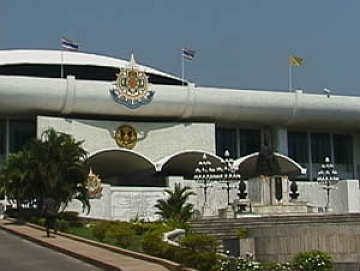| 8. The Era of Local Autonomy Is Still a Remote Reality Thaksin and Tharin, the two major political figures who emerged from Chiangmai in the 1990s, have several things in common. Both established successful careers in the capital city of Bangkok, and their constituencies are in Bangkok, not in Chiangmai (they currently hold seats in the proportional representation district). The only connection with Chaingmai is that it is their hometown. They were able to capture the posts of prime minister and finance minister, respectively, primarily because of their success in the business community of Bangkok. In that sense, they followed in the footsteps of the Nimmanhemin family, whose members are the prominent bureaucratic elites. They really are people of the capital, not people from Chiangmai. It is often said that the establishment of parliamentary politics has opened the door for local business leaders to advance into the national parliament. In reality, however, parliamentarians from local constituencies are grouped and controlled by political parties financed by big business in Bangkok. I have never heard of local business people maintaining their key interests in their local constituencies and yet gaining national prominence. No local business owner has ever captured the premiership in Thailand. The 1997 constitution reduced that possibility further. There seems to be nothing on the horizon threatening the overcentralization in the capital city of Bangkok.
This essay was written in 2002. TAMADA Yoshifumi
|
